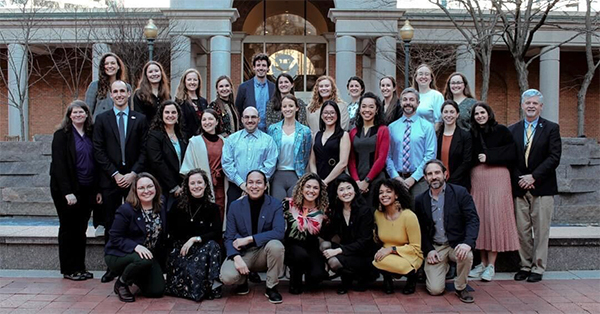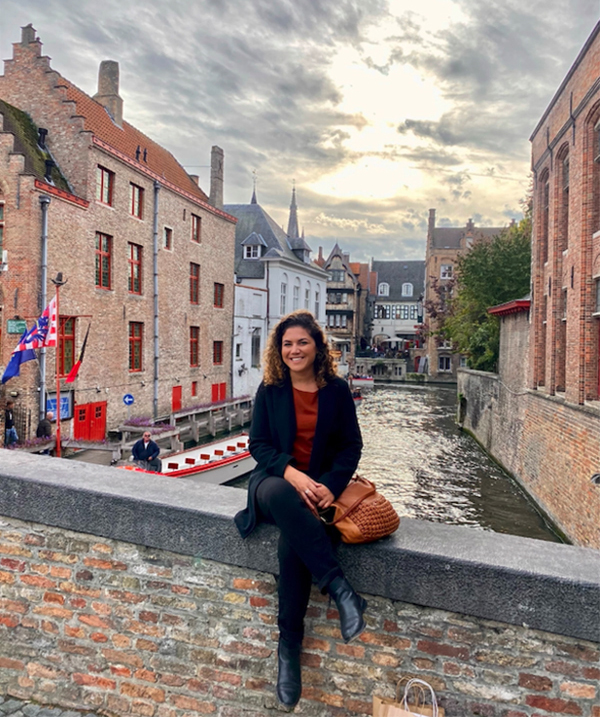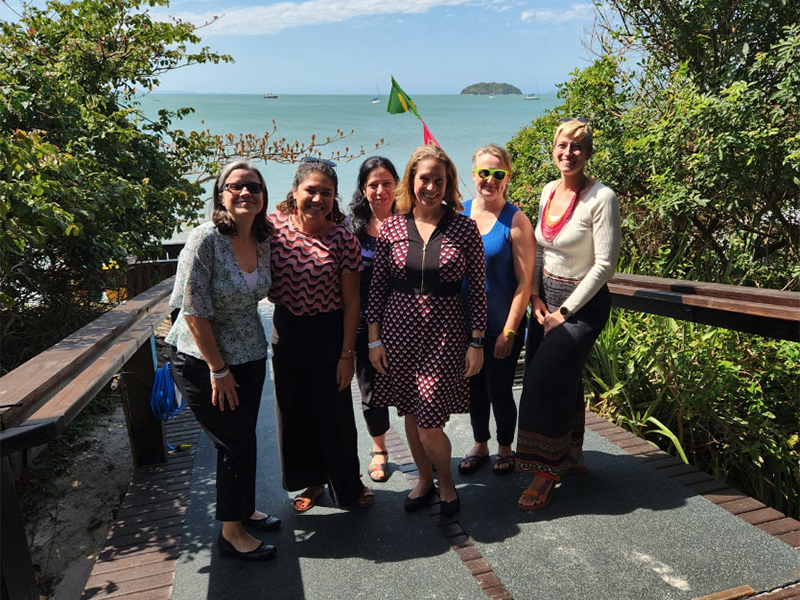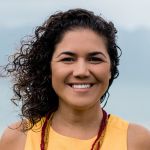A journey from Brazil to DC, via Hawaiʻi: My experience as a Knauss Fellow
by Mariana Rocha de Souza
For me, growing up in a small town in Brazil, the idea of working for the U.S. federal government in DC seemed far-fetched. But as the first person in my family to learn multiple languages, apply to graduate school, and venture abroad, I have always been driven to explore new horizons. My passion for coral reef biology led me to pursue a PhD in Hawaiʻi, where I witnessed firsthand the impacts of climate change on corals. While studying coral reefs and the challenges they face, I realized that evidence-based policy is the key to driving impactful change. This realization led me to apply for the John A. Knauss Marine Policy Fellowship, sponsored by the National Sea Grant College Program and the National Oceanic and Atmospheric Administration (NOAA).

The Knauss Fellowship is a one-year, paid program that places graduate students in executive or legislative positions within the federal government, offering hands-on experience in cutting-edge issues in ocean, coastal, and Great Lakes management and research. Unlike many opportunities and scholarships in the United States that require U.S. citizenship, the Knauss Marine Fellowship is open to any graduate student studying in the U.S. with an interest in these areas. It turned out to be a truly incredible opportunity for me to delve into policy and gain valuable knowledge and skills.
During my fellowship, I worked at the Global Ocean Monitoring and Observing Program (GOMO) where I was responsible for managing two international programs: the Argo Program, which collects information using a fleet of robotic instruments that drift with the ocean currents; and the All-Atlantic Ocean Observing System (AtlantOS) program, which brings together stakeholders using and collecting data in the Atlantic basin. Juggling two portfolios was challenging, but it provided me with valuable experience in multitasking, facilitating meetings, and leadership.

In the first month of my fellowship, I was tasked with the responsibility of leading the UN Ocean Decade forum at the Argo meeting in Monaco, the first forum that brought together data network providers with UN Ocean Decade activities. What a great opportunity to strengthen my leadership skills and meet the Argo community in person.
During 2022, GOMO had its first review, a process every NOAA office goes through every five years. The timing meant I could contribute to the review, preparing presentations for the review day and brainstorming work plans for GOMO for the next five years.
One of the highlights of my fellowship year was attending COP27, as part of the International Coral Reef Society, where I was inspired by the policymakers, negotiators, activists, researchers, politicians, and private sector representatives. (Read more about that event in my previous blog entry.)
Throughout my Knauss year, I was made to feel like a valuable member of the GOMO team and was treated as an employee. My colleagues were genuinely interested in hearing my opinions, which in turn encouraged me to speak up and share my thoughts.
As the only South American in the room most of the time, I noticed the lack of country participation in many global programs. With the objective of increasing representation from other countries, I used a data-driven approach to identify gaps in country representation within the Argo program and presented my findings to both the GOMO office and the 7th Argo Scientific Meeting in Brussels. I also suggested having the first in-person AtlantOS meeting in a South American country. By happenstance, that country ended up being Brazil, which led to interesting discussions with scientists from that region and gave me a chance to show my home country to my co-workers.

During my fellowship, I also had the opportunity to visit various federal agencies, including NOAA, NASA, the EPA, the White House, the Capitol, the Naval Observatory, and the Pentagon, through private tours organized by fellows in my cohort. I met multiple times with NOAA leadership and networked with many people from various agencies. Now, a few weeks after the end of my Knauss Fellowship, I am grateful for the opportunity and the experiences and connections that will continue to impact my career.
 About the author:
About the author:
Mariana Rocha de Souza, was a 2022 Knauss Fellow, placed at the Global Ocean Monitoring and Observing Program at NOAA, aligning with her interest in conservation biology. Mariana grew up in Brazil, is fluent in four languages, and has travelled to many countries!

